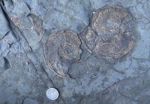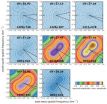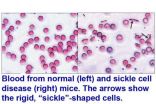(Press-News.org) ROCHESTER, Minn. -- Smokeless tobacco users who said they didn't want to quit changed their minds or significantly cut back when given nicotine lozenges or tobacco-free snuff in a Mayo Clinic study. The findings are published in the February issue of Addictive Behaviors.
Mayo researchers recruited 81 users of chewing tobacco or snuff with no intention of quitting in the next 30 days. Forty were given 4-mg nicotine lozenges and 41 received tobacco-free snuff to help cut back their smokeless tobacco use. They were asked to cut back 50 percent by one month and 75 percent by two months.
Participants received eight weeks of treatment and behavioral counseling on tobacco reduction strategies with follow-up to 26 weeks. Both groups significantly reduced smokeless tobacco use in cans used per week and dips per day and sustained it through the end of the study. About one-third of study participants continued using 75 percent less smokeless tobacco use 26 weeks after the study, and 12 percent of the participants quit using it completely.
"The reason why that is so striking and important to us is these patients had no intention of quitting," says addiction expert Jon Ebbert, M.D., a tobacco researcher at the Mayo Clinic Nicotine Dependence Center. "Through the process of just reducing their tobacco, participants wanted to quit and were successful in doing so."
Long-term smokeless tobacco use is associated with cardiovascular disease and cancer. Previous studies have evaluated the effectiveness of nicotine lozenges and tobacco-free snuff for reducing smokeless tobacco use among smokeless tobacco users not ready to quit, but no comparative effectiveness trials of these two products have been conducted, Dr. Ebbert says.
###
The study was funded by the National Cancer Institute (R01 CA121165).
About Mayo Clinic
Mayo Clinic is a nonprofit worldwide leader in medical care, research and education for people from all walks of life. For more information, visit www.mayoclinic.com and www.mayoclinic.org/news.
Journalists can become a member of the Mayo Clinic News Network for the latest health, science and research news and access to video, audio, text and graphic elements that can be downloaded or embedded. END
Nicotine lozenges, tobacco-free snuff help smokeless tobacco users quit, Mayo Clinic finds
2013-02-19
ELSE PRESS RELEASES FROM THIS DATE:
Fungi offers new clues in asthma fight, say Cardiff scientists
2013-02-19
Hundreds of tiny fungal particles found in the lungs of asthma sufferers could offer new clues in the development of new treatments, according to a team of Cardiff University scientists.
In the first large study of its type, published in the journal, BMC Infectious Diseases, a team of researchers from Cardiff University's School of Medicine have uncovered large numbers of fungi present in healthy lungs.
"Historically, the lungs were thought to be sterile," according to Dr Hugo van Woerden from Cardiff University's Institute of Primary Care and Public Health, who led ...
Is there a link between coffee drinking and mortality?
2013-02-19
New Rochelle, NY, February 19, 2013–A large study of nearly half a million older adults followed for about 12 years revealed a clear trend: as coffee drinking increased, the risk of death decreased. Study author Neal Freedman, PhD, MPH, National Cancer Institute, discusses the significance of these findings and the potential links between coffee drinking, caffeine consumption, and various specific causes of disease in an interview in Journal of Caffeine Research, a peer-reviewed journal from Mary Ann Liebert, Inc., publishers. The article is available free on the Journal ...
Fear, anger or pain -- Why do babies cry?
2013-02-19
VIDEO:
Spanish researchers have studied adults’ accuracy in the recognition of the emotion causing babies to cry. Eye movement and the dynamic of the cry play a key role in recognition.
Click here for more information.
Spanish researchers have studied adults' accuracy in the recognition of the emotion causing babies to cry. Eye movement and the dynamic of the cry play a key role in recognition.
It is not easy to know why a newborn cries, especially amongst first-time ...
Study shows reduced risk of preterm birth for pregnant women vaccinated during pandemic flu
2013-02-19
ATLANTA- Pregnant women who received the H1N1 influenza vaccine during the 2009 pandemic were less likely to have premature babies, and their babies weighed more on average.
Influenza infection during pregnancy is associated with adverse infant outcomes such as preterm birth. Emory researchers from the Rollins School of Public Health, in a joint study with Kaiser Permanente of Georgia and the Mid-Atlantic States, evaluated the effectiveness of the H1N1 influenza vaccine in pregnant women against adverse infant outcomes during the 2009 pandemic. They compared birth outcomes ...
Jurassic records warn of risk to marine life from global warming
2013-02-19
Researchers at Plymouth University, UK, believe that findings from fieldwork along the North Yorkshire coast reveal strong parallels between the Early Jurassic era of 180 million years ago and current climate predictions over the next century.
Through geology and palaeontology, they've shown how higher temperatures and lower oxygen levels caused drastic changes to marine communities, and that while the Jurassic seas eventually recovered from the effects of global warming, the marine ecosystems that returned were noticeably different from before.
The results of the Natural ...
Towards a new moth perfume
2013-02-19
A single mutation in a moth gene has been shown to be able to produce an entirely new scent. This has been shown in a new study led by researchers from Lund University in Sweden. In the long run, the researchers say that the results could contribute to tailored production of pheromones for pest control.
Male moths can pick up the scent of a female moth from a distance of several hundred metres. The females produce sexual pheromones – scent substances that guide the males to them. There are around 180 000 species of moth and butterfly in the world, and most of them communicate ...
Radio telescope, GPS use ionosphere to detect nuclear tests
2013-02-19
WASHINGTON--U.S. Naval Research Laboratory radio astronomer, Joseph Helmboldt, Ph.D., and researchers at Ohio State University Department of Civil, Environmental and Geodetic Engineering analyzed radio telescope interferometry and Global Positioning Satellite (GPS) data recorded of the ionosphere during one of the last underground nuclear explosions (UNEs) in the U.S., codenamed Hunters Trophy.
Situated in the Plains of San Agustin, 50 miles west of Socorro, New Mexico, twenty-seven 25-meter parabolic dish antennas collectively make up the National Radio Astronomy Observatory's ...
Private Security Industry must be made transparent and accountable, study concludes
2013-02-19
The true cost of war is being masked by the secretive and largely unaccountable activities of a private security industry, according to a new study.
These invisible costs of war – both in terms of casualties and financial resources – are not reported and are hard to find because contractors are not subject to the same reporting structures and laws as the regular military, and many of their activities are protected from Freedom of Information requests.
Private security firms – usually run by former senior figures in the military, civil service or politics – are increasingly ...
Could an old antidepressant treat sickle cell disease?
2013-02-19
ANN ARBOR, Mich. — An antidepressant drug used since the 1960s may also hold promise for treating sickle cell disease, according to a surprising new finding made in mice and human red blood cells by a team from the University of Michigan Medical School.
The discovery that tranylcypromine, or TCP, can essentially reverse the effects of sickle cell disease was made by U-M scientists who have spent more than three decades studying the basic biology of the condition, with funding from the National Institutes of Health.
Their findings, published in Nature Medicine, pave ...
Buying ad time just got easier
2013-02-19
EAST LANSING, Mich. — Today's consumers switch between media forms so often – from TV to laptops to smart phones – that capturing their attention with advertising has gone, as one CEO explained, from shooting fish in a barrel to shooting minnows.
Now, a Michigan State University business scholar and colleagues have developed the most accurate model yet for targeting those fast-moving minnows. The research-based model predicts when during the day people use the varying forms of media and even when they are using two or more at a time, an increasingly common practice known ...





